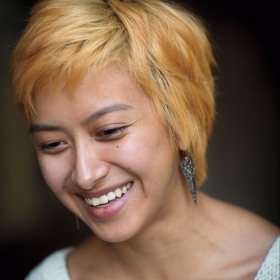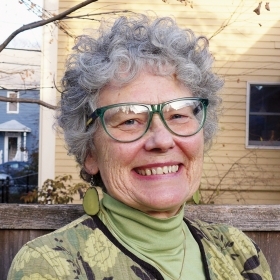Pioneering Programers
I was delighted to read the article by Lisa Scanlon Mogolov ’99 in the winter Wellesley magazine and the sidebar about Mary Allen Wilkes ’59 (“Get With the Programming” and “Wellesley’s First Programmers”). I was pleased to learn there was another Wellesley grad who was an early computer programmer. After graduating with a degree in economics in 1957, I was hired by IBM’s federal office in Washington, D.C. There, I wrote programs (some highly secret) for the government using the same huge computers as Mary did. I worked for IBM until 1964, leaving with the title of senior systems engineer. Following my IBM years, I continued to design systems for my prior IBM customers and worked for several New York City consulting firms before forming my own firm, Computer Software Management. The software that the firm created was bundled in IBM mid-range computers, earning CSM the elite status of IBM Business Partner.
I sold the firm and “retired” in 1995, but have continued to stay in the field by helping others of my age master the mysteries of their computers and phones. I have loved every minute of my career, especially as there was always been a new computer or language to learn and wonderful clients with whom to interact.
Betsy Rauch Rainoff ’57, Southern Pines, N.C.
Well Suited to Computers
I read with envy about courses now being offered in computer programming and problem solving, and in particular “Wellesley’s First Programmers” (“Get With the Programming,” winter ’16). Despite not having had these available to me, I was fortunate in having the Wellesley Placement Office steer me in the right direction after graduation. I was provided with a list of possible job sites in the Washington, D.C., area appropriate for a math major. Despite having no idea what to expect, I went for an interview at IBM and from that moment, I was hooked. IBM had its own superb training programs, and I ultimately became an IBM systems engineer.
It was an extraordinary experience for me, utilizing my math background, my interest in teaching, my knack (I think) of getting along with people, and my logical mind. A lot of it was “on the job training,” as exemplified by my assignment to oversee the installation of the first typesetting computer (before word processing) at the Washington Evening Star newspaper. There was no documentation, nor class instruction, as the program had just been written and was only being used at two other newspapers. Its purpose was to hyphenate and justify text, and it was meant to replace the linotype. My job was to learn the program and learn the function of the linotype in order to customize the software to produce the text similar to the output of the linotype. I frequently worked the night shift with the linotype operators, who, though threatened by being replaced, became my friends.
I often thought that this was a career well suited for many women. It requires people skills, patience, and interest in detail. Math skills were not critical, but a logical mind was. It has taken a long time to spread the word that this is an exciting and rewarding field for women.
Nancy Dessoff Colodny ’60, Naples, Fla.
In Praise of Wellesley Nurses
Thank you for highlighting a nurse in the winter ’16 issue (“Lives in Transition”). Like Christine Howe ’69, I have worked as a hospice nurse, although most of my career has been as a nurse educator. Along with us, I know there are additional Wellesley graduates with professional lives in nursing. For me, a Wellesley degree in biology has consistently provided an advantage for understanding and teaching pathophysiology, while a liberal-arts education has facilitated planning care within the context of culture, history, and socio-economics. I have no doubt that other nurses have used their Wellesley backgrounds in even more creative ways to improve the quality of life for countless people. Cheers to all my colleagues who are both Wellesley grads and nurses!
Janet Morgan ’70, Ithaca, N.Y.
The First-Gen Experience
I have been enjoying Wellesley magazine so much in the past year or so. I read it cover to cover, and it makes me wish I were back there now taking advantage of all of the experiences available to students these days.
I’ve never written a letter to the editor before, but the fall ’15 article on first-generation Wellesley students really resonated (“We Are First”). I was a first-generation student back in 1981, before we talked or thought about those issues. I related to many of the women who were highlighted in the article, and I’m glad to see that Wellesley is tackling issues of recruitment, financial aid, community, etc.
I didn’t feel academically unprepared for Wellesley (something that was raised in the article), but in retrospect, I was horribly unprepared socioeconomically. I had no clothes for galas and other fancy events, I couldn’t afford to travel home except at the holidays and summer, and any money I had to spend was what I made in work study or during the summer.
My Wellesley friends were fabulous in lending me clothes and inviting me home at breaks, and I rarely felt out of place. The only thing I regret is that Wellesley had no program in place for financial assistance for study abroad or for internships. Many of the internships I would have loved to apply for were unpaid and therefore out of the realm of possibility, and I certainly didn’t have the budget for study and travel abroad.
I had a great all-around experience at Wellesley, and I’m glad to see that we are now making it possible for even more first-generation students to access all of the opportunities that the school has to offer.
Karla Brom ’85, St. Paul, Minn.
Only to Be There
I, also, am my family’s first generation to go to college (“We Are First,” fall ’15), and Wellesley College at that! Even though my parents did not attend college (my mom had hoped to, but the Depression hit, and my dad went to a music school), my parents wanted, and very much encouraged, me to go. My dad often said, “Get a good education so you can get a good job.”
I had always done well in school, so my mom was interested in me going to a fine college. She made sure that I had an appointment with my school’s dean (New Trier High School) to discuss an appropriate choice. My mom attended the meeting, too. Wellesley was brought up, as a neighbor had gone there, and the dean greatly encouraged me to apply.
Yes, I applied, and put other acceptances on hold until I heard from Wellesley. Of course, I was thrilled to be accepted, and thoroughly value and appreciate my four years at this outstanding college.
Thank you, Wellesley!
Joan “Toni” Gallicchio Caviness ’56, Tiburon, Calif.







